Jailed Iranian Nobel Peace Laureate Calls For Gaza Ceasefire
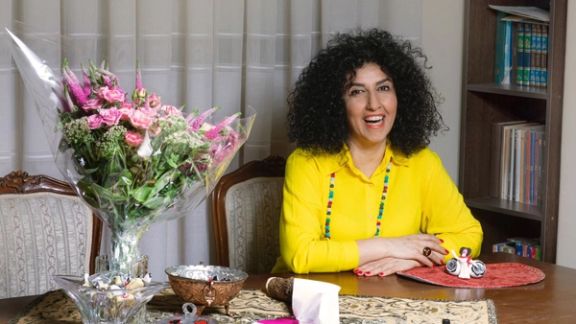
Narges Mohammadi, the imprisoned Iranian Nobel peace laureate, has called for an end to war and immediate ceasefire between Hamas militants and Israeli forces.

Narges Mohammadi, the imprisoned Iranian Nobel peace laureate, has called for an end to war and immediate ceasefire between Hamas militants and Israeli forces.
In a short statement published on Instagram, Mohammadi wrote: “Attacks on innocent people, hostage taking, killing of women, children and non-combatants, targeting of hospitals, missile strikes on residential areas, all have left the world in astonishment, horror and despair.”
Mohammdi slammed “religious tyranny” in Iran, adding that war and despotism are two sides of the same coin as they are both “destructive to humanity.”
Her criticism of the Iranian regime comes as many accuse Tehran of escalating tensions in the region by funding such terrorist groups as Hamas and Hezbollah.
“Lives of innocent civilians must not be sacrificed at the behest of those seeking war,” Mohammdi stressed in her message.
The Nobel peace prize laureate also urged all sides to respect human rights and “create the possibility of peaceful coexistence.”
She voiced optimism that “we can walk the path of peace, equality and freedom” with “the power of global public opinion” and “the international unity of human rights defenders and peacemakers.”
Though some people have praised Mohammadi’s call for peace, a group of activists slammed her on social media for failing to condemn Hamas’ deadly terrorist attack on Israel which claimed the lives of more than 1,400 people and left at least 5,000 wounded.
On October 6, Mohammadi won the 2023 Nobel Peace Prize. She is now serving a 12-year sentence in Evin prison in the Iranian capital city Tehran.

Tech entrepreneur Elon Musk has justified his decision to allow the likes of Iran's supreme leader on his social media platform, X as a "UN exclusion rule".
Speaking on the Joe Rogan podcast, he said: "We do have a kind of UN exclusion rule: you can have, say, the Ayatollah who would prefer that Israel didn't exist, but he's allowed to go to the UN building in New York. Generally, officials from Iran do go to the UN building even though they're a heavily sanctioned country.
"But you do want to have the leaders of countries represented on social media. You want to hear what they have to say, even if what they say is terrible."
Following a Hamas attack on Israel in early October, Musk used his X platform to call on Iran's Ali Khamenei to change his anti-Israel stance. Musk's response came in the wake of a large-scale terrorist invasion of Israel of thousands of Hamas troops which resulted in the murder of 1,400 mostly civilians and the kidnap of 240 more into Gaza.
"Khamenei’s official position is clear that the eradication of Israel is the actual goal, not just supporting Palestinians," Musk said one day after the atrocities which were the most deadly single day in Jewish history since the Holocaust.
X stated that Khamenei's post of October 8, in which he shared video footage of hundreds of festival-goers fleeing the massacre of Hamas militia had "violated" X's rules, but stated it was in the public interest to keep the post accessible.
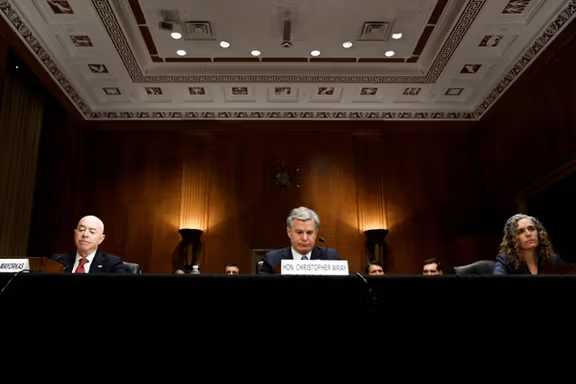
FBI director Christopher Wray told US lawmakers on Wednesday that the Islamic Republic has tried to kill American officials, even within the United States.
Testifying in front of the Senate Committee on Homeland Security and Governmental Affairs, Wray said the regime in Iran has “mounted assassination attempts against dissidents and high-ranking current and former US government officials" either directly or by hiring criminals, and including “on American soil.”
Since October 7, when Hamas attacked Israel, Iran and its proxies have become subjects of unprecedented scrutiny in Washington.
Wray was called to testify in the Senate in the light of attacks on American forces in the Middle East, which seems to be on the rise despite repeated warnings to Iran-aligned forces from the Biden administration.
In the last two weeks, US troops in Syria and Iraq have been attacked 27 times. The Pentagon has said that it holds the Islamic Republic responsible “for all attacks.”
Reports emerged early hours Thursday of yet more attacks on US bases in Iraq.
“Explosions have been reported once again in the US Forces Bases… in Eastern Syria,” Intelligence Monitor posted on X, “This would be at least the 37th Attack on US Forces in the Middle East since October 7th.”
In his opening remarks to the Senate hearing, Wrey warned that cyber targeting of “American interests and critical infrastructure” could get worse “if the conflict expands.”
“Hezbollah, Iran’s primary strategic partner, has a history of seeding operatives and infrastructure,” Wray said, “obtaining money and weapons, and spying in this country going back years.”
Hezbollah leader Hassan Nasrollah is scheduled to deliver a speech Friday afternoon in what would be his first televised address since Hamas attacked Israel on October 7. The group’s channels have been publishing mysterious teasers of Nasrollah, giving rise to speculations that he would declare war on Israel.
President Joe Biden’s critics say his lenient approach towards Iran has emboldened the Islamic regime.
“This administration has allowed over 100 attacks in the last two years,” Congressman Mike Waltz said to Fox News. “Iran will trade the lives of its proxies in Iraq or Syria or Lebanon for American and Israeli lives. All day long. That’s a good deal for the ayatollah. Only when they feel the pain, will they stop.”
Republican Senator John Kennedy seconded Waltz sentiment in another interview with Fox News Wednesday. “Parts of the world are on fire, why is that? In part, it’s because Pres. Biden has sent every message of weakness possible to Iran, China, and Russia.”
To rectify what they see as a failure of the Democratic administration, the Republican lawmakers have drafted "the toughest Iran sanctions package ever proposed by Congress”, which would stop the Biden administration from "lifting sanctions until Iran ceases its support for terrorism," including Hamas.
“The Biden admin has failed to take actions,” wrote Senator Joni Ernst on her X, sharing a clip of Chris Rey at the Senate hearing. “My PUNISH Act will put an end to this appeasement and ensure Iran feels maximum repercussions.”
Part of the new legislative initiative is a bipartisan bill introduced by Senators Joni Ernst and Richard Blumenthal, which enables Homeland Security Investigations (HSI) to enforce oil sanctions “to cut off Iran’s funding for its terrorist proxies.”
Since 2021, Iran has increased its oil revenue by $80 billion.
Biden critics say this money has been used by the IRGC to fund Hamas, Hezbollah and other militant groups in the region. Some believe that ditching the Trump policy of ‘Maximum Pressure’ on Iran has cost the US dearly.
“The Trump administration’s decisive actions told the Iranian regime that real consequences come when you threaten the United States,” Representative Mark Green said Wednesday. “That message has been lost under the Biden administration, and our adversaries know it.
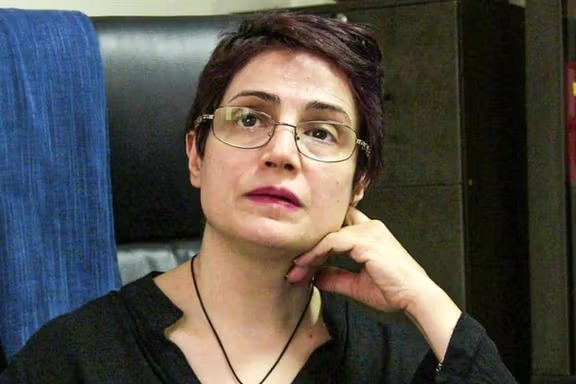
Abram Paley, the US State Department’s deputy special envoy for Iran, has called on Tehran to “do the right thing” and release detained human rights activist, Nasrin Sotoudeh.
In his statement on X, Paley also urged the Iranian government to “cease its violence against the women and girls of Iran.”
On October 29, Iran’s security forces arrested Sotoudeh and several other activists who had attended the funeral of Armita Geravand, the latest victim of Iran’s hijab enforcement.
Armita, a sixteen-year-old girl, died on October 28 after about a month in coma for brain damage she suffered during a violent encounter with hijab enforcers deployed at Tehran’s subway stations. Her body was laid to rest at Tehran’s Behesht-e Zahra cemetery amid a heavy security presence.
Referring to the incident, Paley wrote: “Armita Geravand should be alive today.”
Meanwhile, Matthew Miller, the US State Department’s spokesperson, condemned “the Iranian authorities’ violent assault and unjust detention of several human rights defenders” during Armita’s Geravand’s funeral.
Abolfazl Qadiani (Ghadiani), an outspoken opponent of Iran's Supreme Leader Ali Khamenei, also stated that the murder of the teenage girl adds another dark chapter to the already troubling record of the regime’s leader.
Qadiani asserted, "The murder was committed by the hijab enforcers of Khamenei, the power-hungry ruler of Iran.”
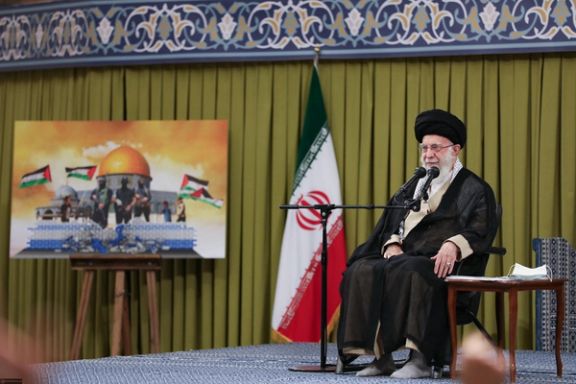
While some top Iranian officials are trying to distance Tehran from Hamas and attacks on US bases, others continue their rhetoric against Israel and the United States.
Iran’s ruler Ali Khamenei attempted to counter international reports suggesting Iran's role in organizing pro-Hamas rallies in major European and US cities during a speech on Wednesday. He humorously dismissed the claims, saying it's as if the Basij militia of the Revolutionary Guard had branches in London and Paris.
Khamenei also appealed to all Muslim countries to boycott Israel, without signaling any willingness to directly render military assistance to Hamas.
In the same speech, Khamenei even distorted Iran's modern history by denying that the seizure of the US embassy in Tehran in 1979 ruined relations between Tehran and Washington for more than four decades.
This was, of course, tantamount to admitting that anti-Israeli rallies in Iran were stage-managed by Khamenei loyalists, although the rallies have been too small to attract any media attention.
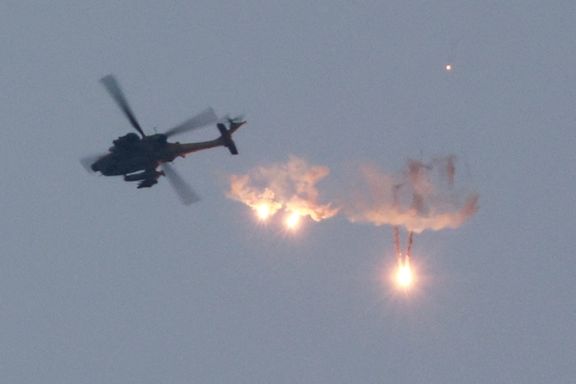
As a former military commander Ghorban Ali Salavatian observed in his tweets, "These days, the social media pages of hardliners are full of videos that show pro-Palestinian demonstrations in Scotland, Morocco, New York, Sweden, Turkey and even Denmark. In Iran some five million people have registered to go to war in Gaza but none of them would take part in a pro-Palestinian rally." He wrote in another tweet: "The reason for this is that the Iranian society has been divided into outsiders and insiders, who beat on battle drums that the unhappy outsiders refuse to hear."
He was referring to the total monopoly of power by hardliners and the increasing ideological rigidity of the regime that has further alienated a populace disgruntled by economic hardships and lack of basic freedoms.
In another development, Mahmoud Abbaszadeh Meshkini, a member of the Iranian parliament's National Security and Foreign Relations Committee, emphasized that opposing Israel's aggressions aligns with the Islamic Republic's ideals. He added that Iran and other regional states will not tolerate Israel's atrocities. Regarding US attacks on Iranian interests in Syria, he stated, "Iran will respond to these attacks globally," emphasizing Iran's strategic planning to retaliate. He concluded, "We will target the US from locations they cannot fathom."
In fact, the US conducted only one retaliatory strike against an IRGC target in Syria last week after more than two dozen drome and rocket attacks by Iran’s proxies on US bases in Iraq and Syria.
Asked how Iran is going to respond to Israel, Meshkini said, "The Islamic Republic will not reveal its secrets, but if Israel continues ground attacks on Gaza, Iran will hit Israel from somewhere Israelis cannot imagine." He was obviously talking about attacks from southern Lebanon and Yemen on the same day that missiles fired by Houthi forces in Yemen landed in Jordan rather than Israel. Meshkini then revealed what he called a secret and said that "the Houthis in Yemen, Hezbollah in Lebanon and other forces in Iraq as well as other forces in Syria are prepared to attack Israel if it crosses our red lines."
At the same time, Iran's Interior Minister Ahmad Vahidi said in an interview with reformist daily Sharq in Tehran that "The attacks on US forces in Syria has nothing to do with Iran." Vahidi added that attacks on the US forces are quite natural as Muslim nations in the region are not indifferent to the fate of the oppressed people of Palestine and fulfil their responsibilities to defend Palestinians. Vahidi further claimed that "It is the United States that has given the green light to Israel to attack Gaza and is managing the Israeli offensive."
Meanwhile, in another comment in defiance of Khamenei's more cautious posturing, Iranian lawmaker Ahmad Hossein Fallahi told Didban Iran website that "Some 150 Iranian lawmakers, many of whom are ex-IRGC officers who have fought in Syria, have expressed their readiness to be deployed to Gaza to fight against Israel."
Fallahi further insisted that Iran will continue to target US bases in Syria and the region. He said "the United States has 150 bases in the region within the reach of Iranian forces. We will target them if America makes a wrong move."

Like most teens, Iran's latest hijab victim, Armita Geravand, was an opinionated young woman who liked to defy convention, including cutting her hair short and rebelling against hijab.
Another tragic victim of state violence, Armita was laid to rest in Tehran’s cemetery after about a month in a coma due to brain injury inflicted during her encounter with Hijab enforcers deployed at the capital’s subway stations.
Two of her friends, who were denied visiting Armita in her last days at Fajr military hospital during her last days, talked to Iran International about their friend, who has been the latest martyr of Iranians' fight against the Islamic regime and its ideologies.
Fearing the wrath of the regime, all of them spoke on condition of anonymity due to the security risks involved. A high ranking police officer was always present in Armita’s room in those final days and her friends and family were neither allowed to visit nor take photos as she lay lifeless in hospital.
The Islamic Republic continues to try and exonerate its hijab enforcers from the incident to avoid the mass protests that would ensue as they did following the death to Mahsa Amini, whose death bore chilling similarities to that of Armita. Some doctored footage however, has failed to convince Iranians.
In both cases, Iranian authorities imposed a full ban on reporting about Armita's death, families intimidated into not speaking to the media.
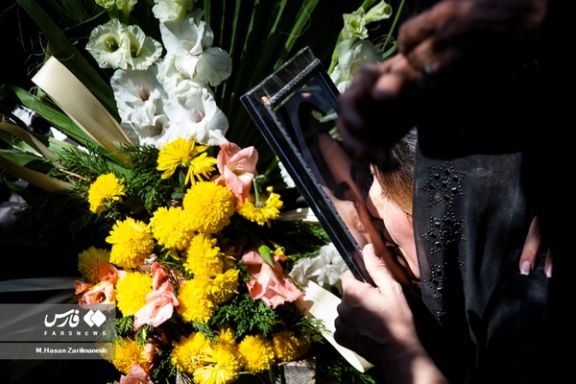
The death of Armita has reignited anti-regime sentiments with people once more chanting slogans from their rooftops and windows the night she was pronounced dead. The regime can only hope that simmering tensions do not result in a repeat of the uprising of 2022 which became the greatest challenge to the regime since its establishment in 1979.
No matter the censorship and intimidation, the public already made their minds up. One of Armita's friends, in response to Iran International's question about what they think happened to Armita, said, "The same thing that the Islamic Republic doesn't want us to say; the same thing that happened to Mahsa."
Since the day Mahsa Amini died in the hands of the regime’s hijab enforcers, a growing number of Iranian women have been defying the Islamic Republic's compulsory hijab rules. Losing control, the regime has leveled up its hijab enforcement and updated its laws to criminalize non-compliance via harsher penalties but has failed to re-establish compliance.
Another one of her friends recounted a story where Armita was confronted by a cleric asking why she was not covering her head. She boldly told the cleric, “Did I ask you why you wrapped a fabric around your head?” referring to his turban, adding, “Then, you have no right to tell me why I didn't!”
During her comatose days and after her death, tiny details of Armita’s life have been trickling online through her family and friends. The teenager, who voluntarily made all the walls of her school into amateur art, has her own room decorated with miscellaneous memorabilia. An old stamp with the photo of Iran’s last shah Mohammad-Reza Pahlavi on her wall has especially attracted the attention of Iranian royalists, who claim Armita was cognizant of Iran’s recent history.

According to her friends, Armita liked horror movies, was a fan of Iran’s Reds football club and Spain’s Barcelona. Rooted in her heritage, she loved Zereshk Polo Morgh (Iranian rice with barberry and chicken) and her regular hangout was the Frost Flower (Gol-e Yakh) café at Tehran’s Pirouzi street where she lived.
It remains unknown what exactly happened on October 1 but for the Iranian public, it is a painful case of history repeating. No matter what killed Armita, she was an Iranian not represented by the Islamic Republic and the latest – but not the last -- killed for that.